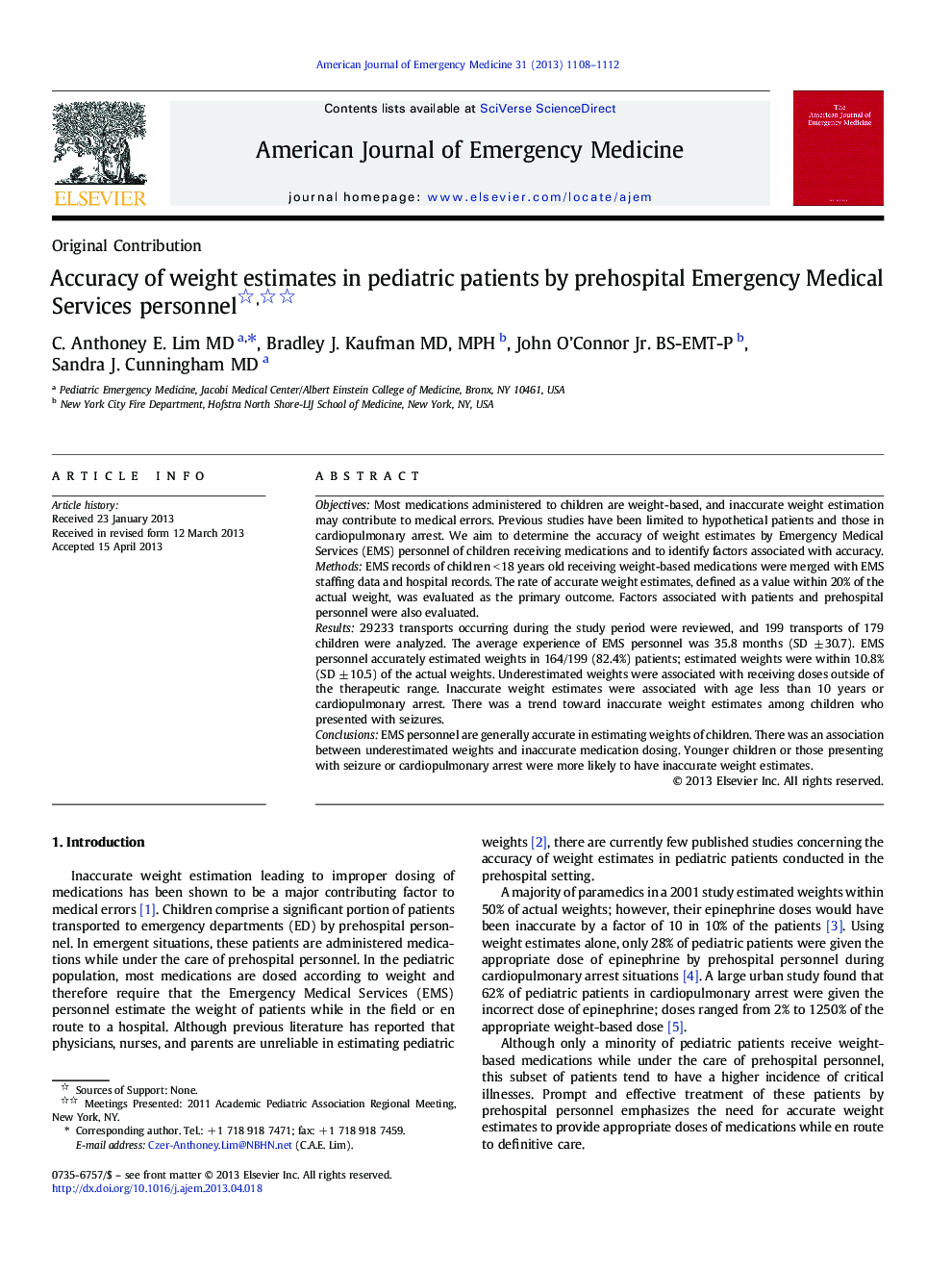| کد مقاله | کد نشریه | سال انتشار | مقاله انگلیسی | نسخه تمام متن |
|---|---|---|---|---|
| 3223484 | 1588128 | 2013 | 5 صفحه PDF | دانلود رایگان |

ObjectivesMost medications administered to children are weight-based, and inaccurate weight estimation may contribute to medical errors. Previous studies have been limited to hypothetical patients and those in cardiopulmonary arrest. We aim to determine the accuracy of weight estimates by Emergency Medical Services (EMS) personnel of children receiving medications and to identify factors associated with accuracy.MethodsEMS records of children < 18 years old receiving weight-based medications were merged with EMS staffing data and hospital records. The rate of accurate weight estimates, defined as a value within 20% of the actual weight, was evaluated as the primary outcome. Factors associated with patients and prehospital personnel were also evaluated.Results29 233 transports occurring during the study period were reviewed, and 199 transports of 179 children were analyzed. The average experience of EMS personnel was 35.8 months (SD ± 30.7). EMS personnel accurately estimated weights in 164/199 (82.4%) patients; estimated weights were within 10.8% (SD ± 10.5) of the actual weights. Underestimated weights were associated with receiving doses outside of the therapeutic range. Inaccurate weight estimates were associated with age less than 10 years or cardiopulmonary arrest. There was a trend toward inaccurate weight estimates among children who presented with seizures.ConclusionsEMS personnel are generally accurate in estimating weights of children. There was an association between underestimated weights and inaccurate medication dosing. Younger children or those presenting with seizure or cardiopulmonary arrest were more likely to have inaccurate weight estimates.
Journal: The American Journal of Emergency Medicine - Volume 31, Issue 7, July 2013, Pages 1108–1112